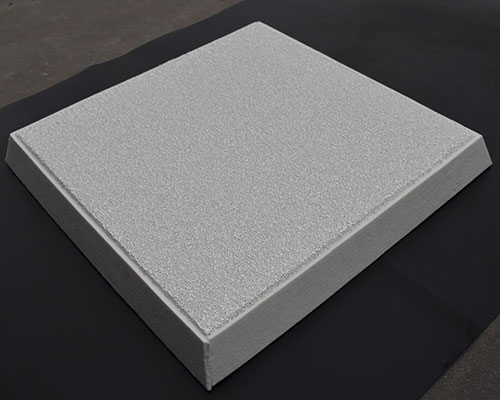This is AdTech’s ceramic filter with a fiber gasket. Ceramic filter with a fiber gasket can not only remove tiny scum, but also absorb micron-level inclusions because of its adsorptive properties. Because they have excellent resistance to molten aluminum erosion and corrosion, they can effectively remove inclusions, reduce trapped gas and provide laminar flow, and then the filtered metal is significantly cleaner.
Cleaner metals can produce higher quality castings, fewer scraps and fewer inclusion defects, all of which help increase profits.
With the development of science and technology, industrial production has higher and higher requirements for the purity and quality of aluminum and its alloy materials. The traditional refining and degassing process cannot remove the fine and suspended non-metallic inclusions in the molten aluminum. Therefore, people have studied many purification methods. According to their different mechanisms and forms, they can be divided into adsorption purification, physical purification, and filtration purification.
Filtration and purification are to make the molten metal flow through a certain medium. This medium captures the inclusions according to a certain mechanism, thereby purifying the metal. In 1978, the United States developed a new filter-ceramic foam filter, which provides a high-efficiency filter for the production of aluminum castings, and is widely used in the production of semi-continuous ingots and molded castings.
Ceramic Foam Filter For Metal Filtration is specially developed by AdTech for purifying molten aluminum. The molten aluminum flows through the tortuous and porous three-dimensional foam structure, and the tiny impurities are trapped, adsorbed, deposited, and firmly adhered to the pore walls, filtering out the micron-level impurities in the molten aluminum, and solving the aluminum alloy’s sensitivity to internal defects.
Ceramic foam filters are basically divided into 6 pore sizes: 10PPI, 15PPI, 20PPI, 25PPI, 30PPI, and 40PPI. The larger the number, the smaller the aperture. But in actual practice, the four types of 10PPI 20PPI 30PP 40PPI can meet the needs of customers.

